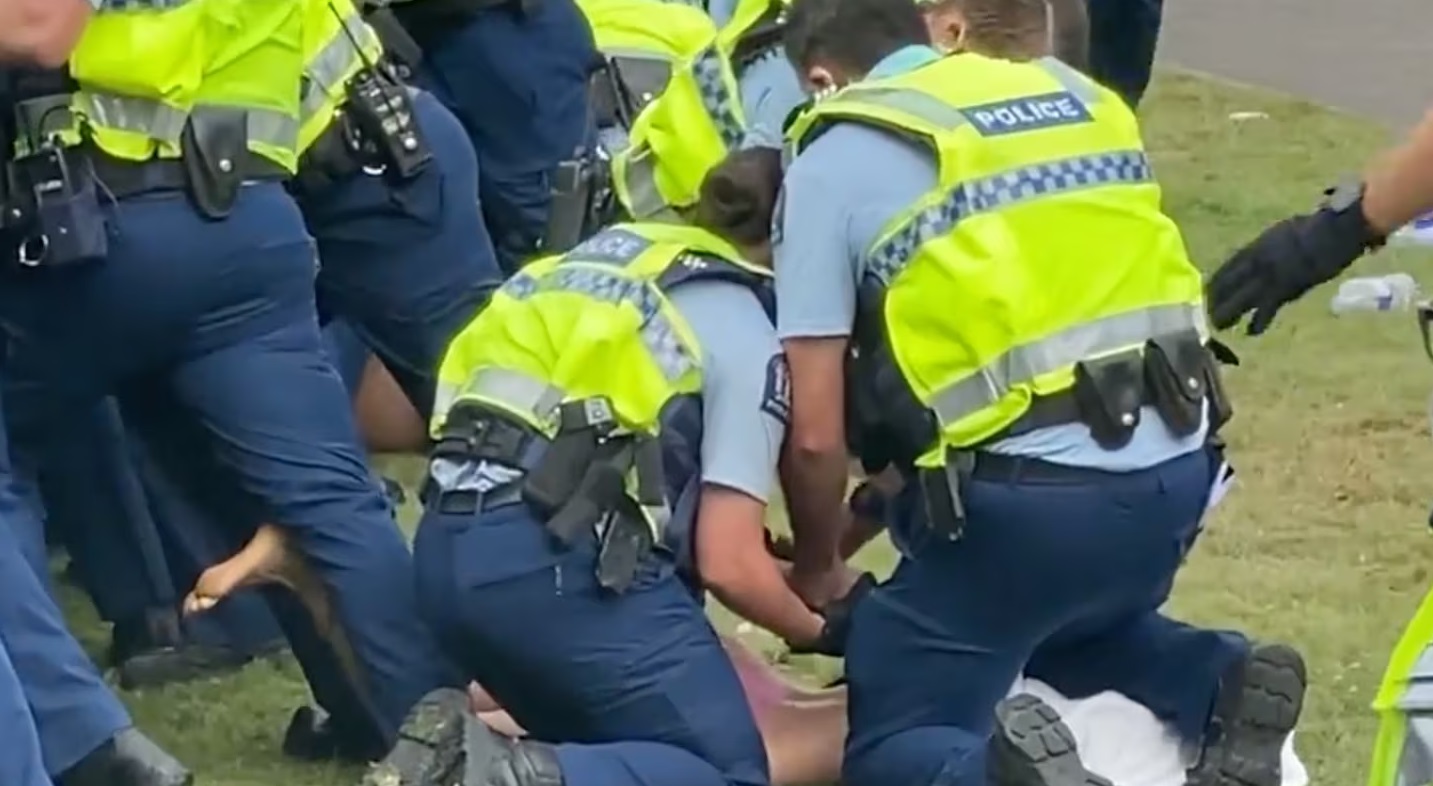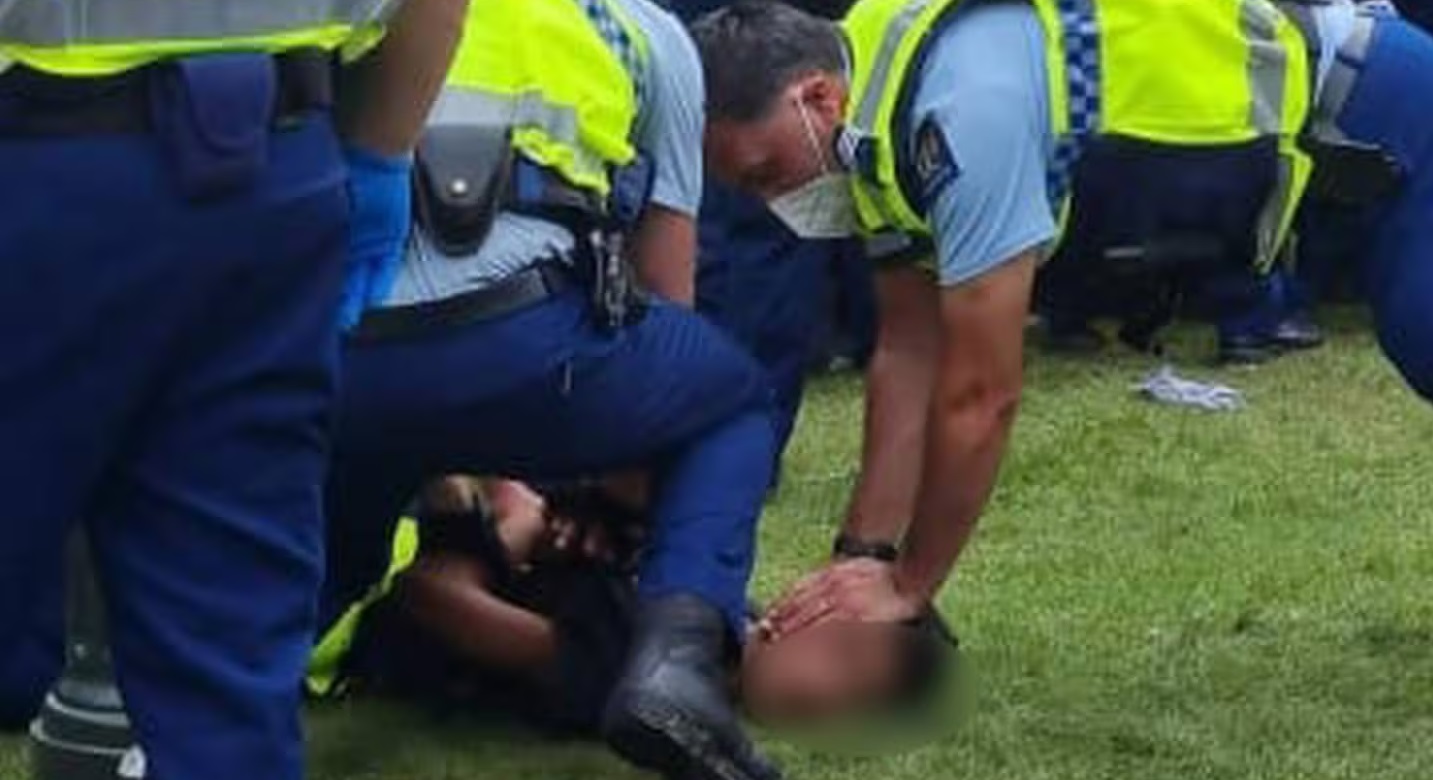
A District Court judge commented during a criminal hearing for one of those protesters that while there may have been resistance, there were “genuine questions about the level of force” used by the officer, who was second in charge of the entire operation at Parliament.

However, the officer argued the restraint was reasonable and police concluded his actions didn’t meet the legal threshold for any charges to be laid.
Now Cassin and a fellow protester have filed a civil claim in the High Court, alleging their rights were breached by what they claim was excessive force. They are seeking compensation.
On February 10 last year, Cassin stripped down to her underwear and covered herself in coconut oil as police began their operation to clear occupiers.
Video shows Cassin being pulled from the crowd by her hair and forced to the ground, before her upper body was draped in a blanket by a paramedic. A male police officer then kneeled on her upper body while she was arrested by two female officers.
Cassin made a complaint about the officer, but she was charged with trespass before the police’s investigation into the officer concluded.
She went to trial in March but Judge Andrew Nicholls dismissed the case part way through, citing the 14-month wait for the trial and the “serious mistakes” of the police prosecution in not ensuring the officer was available to give evidence.
Cassin’s lawyer Tudor Clee had repeatedly requested that the officer be made available to give evidence at her trial - but the officer in charge of the case, who had known the officer for 20 years, failed to arrange for him to appear, claiming he narrowly read his emails.
Cassin was later awarded nearly $6000 in costs.

The claim has been filed against both the officer and Police Commissioner Andrew Coster.
Lawrence was aged 17 at the time and was arrested on the same day as Cassin.
They both complained to police about the officer’s actions and a criminal investigation into his conduct that day was opened.
As part of the investigation, police sought advice from Dr Judy Melinek, an internationally respected forensic pathologist.
In relation to Cassin’s arrest, Melinek said covering the detainee’s face with a blanket meant her breathing couldn’t be assessed. As her head was covered, Melinek believed there was no way the officer knew what part of her body he was kneeling on.
She said pressure placed on the head and neck was “potentially life-threatening” had it resulted in injuries, although she said it was impossible to tell how much force was applied.
The officer said in a police interview that Cassin was aggressive and “rarking up the crowd”. He said the ground took the majority of his weight and he claimed Cassin was resisting arrest.
Melinek said she believed the force used in relation to Lawrence’s arrest was unnecessary as the teen appeared to be compliant and not moving his head. She claimed the force could have had fatal consequences as the area of the skull in question is very thin.
In his interview, the officer said the teen was resisting arrest and the force was the quickest, safest and most reasonable option available to him.
Ultimately, the investigating officer decided the threshold to charge wasn’t met in either of the complaints - but did find that both protesters weren’t resisting arrest as the officer claimed.
Criminal barrister Michael Bott told NZME civil claims against police officers were uncommon.
“The standard of proof is on the balance of probabilities, as opposed to beyond reasonable doubt.”
Bott said a civil claim is run similarly to a criminal trial. The claim is alleged, parties disclose their evidence to each other, and it is argued before a judge or a jury.
As it is a civil claim, it can be settled out of court before it results in a trial.
Police were approached for comment but did not respond.
- By Ethan Griffiths
- Open Justice multimedia journalist, Wellington









